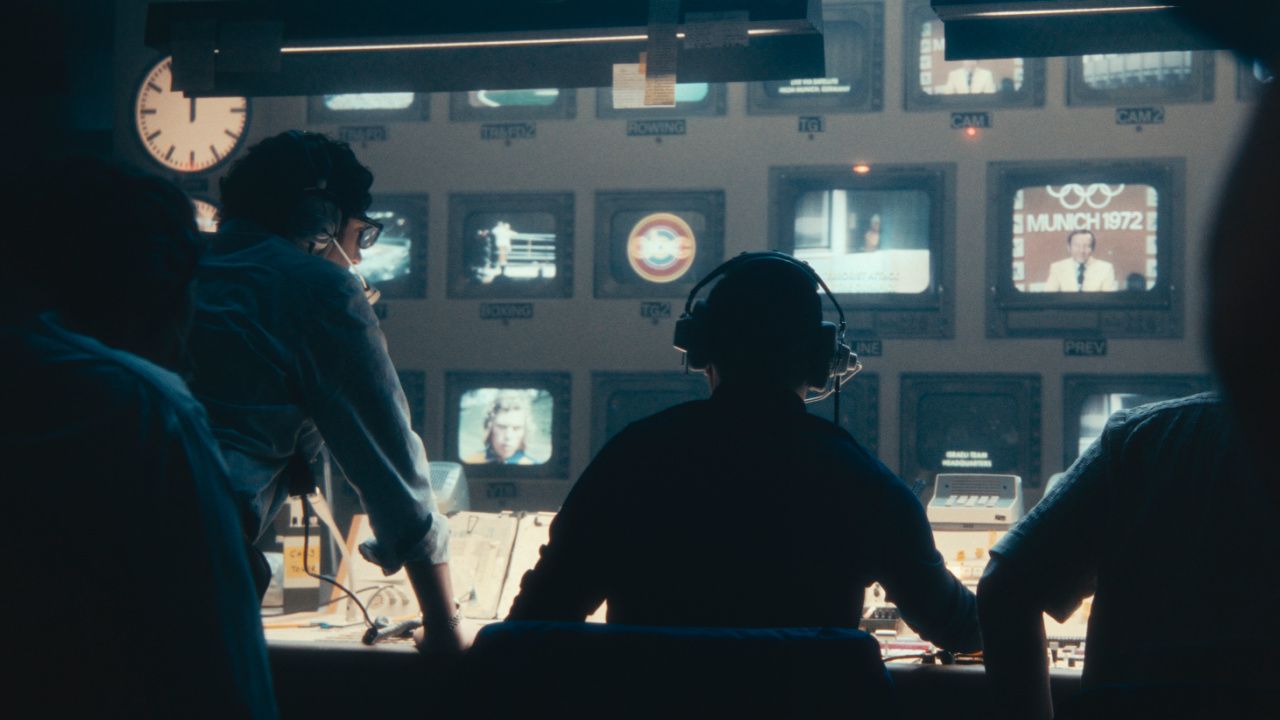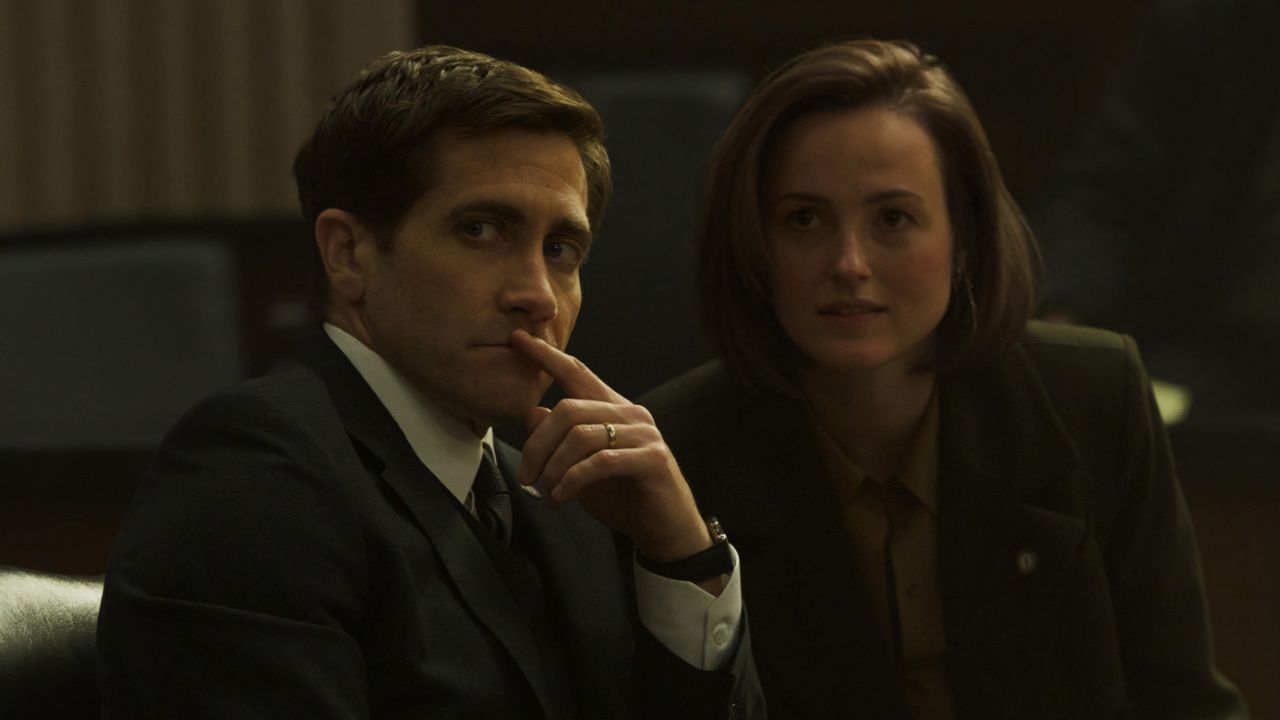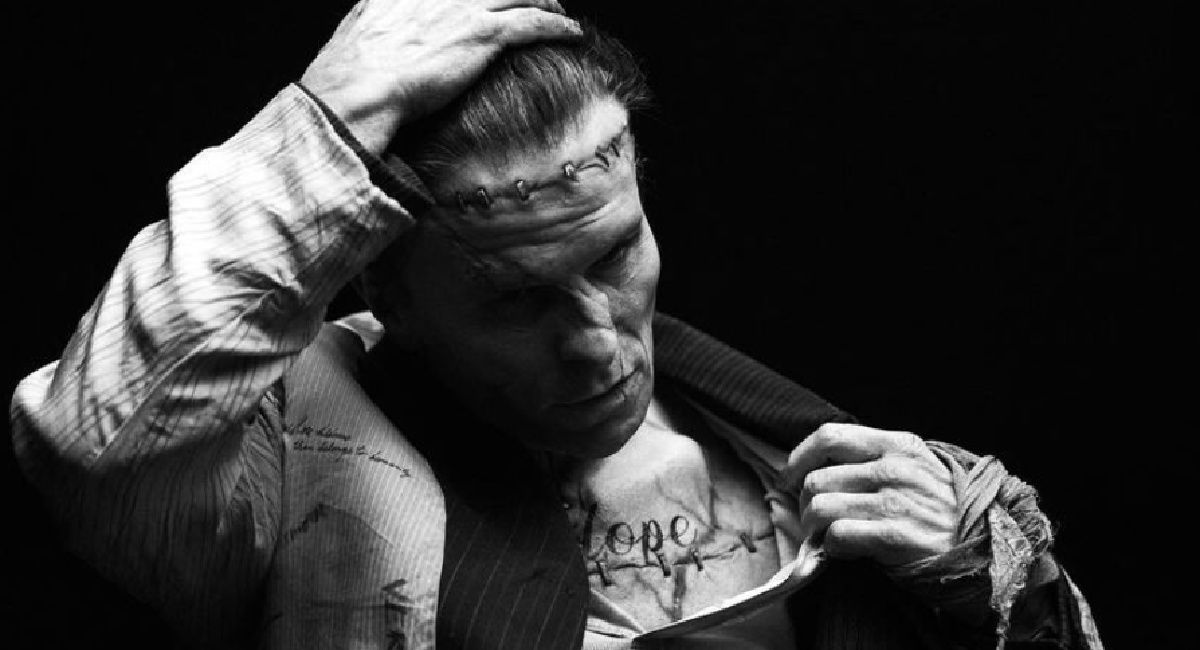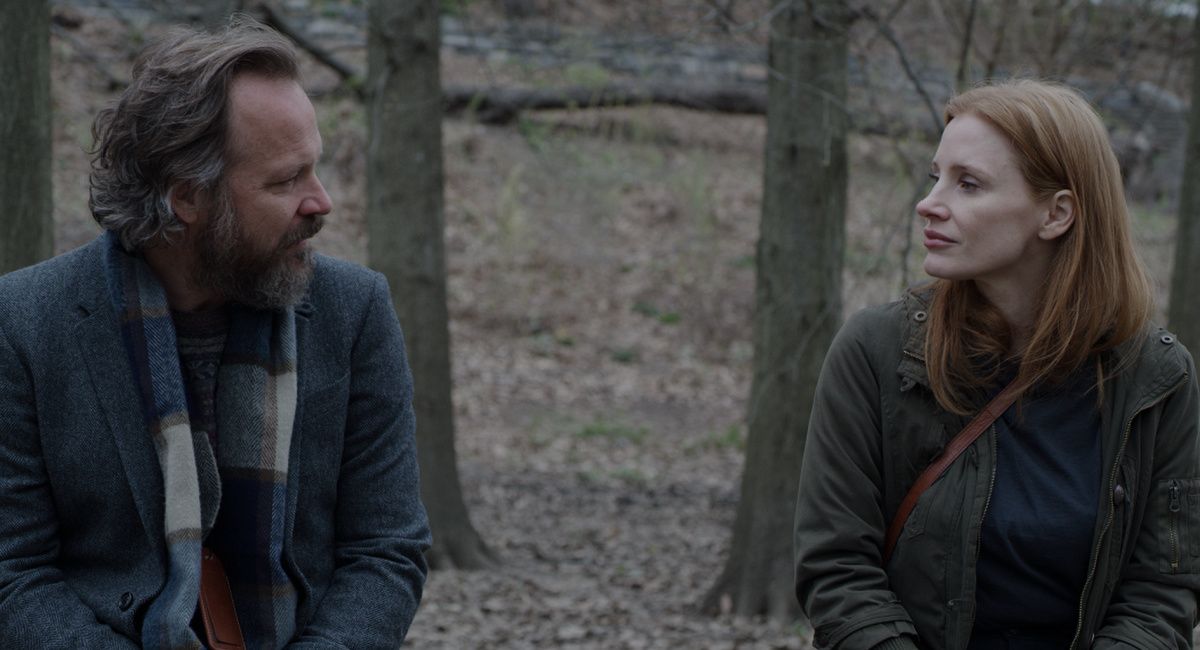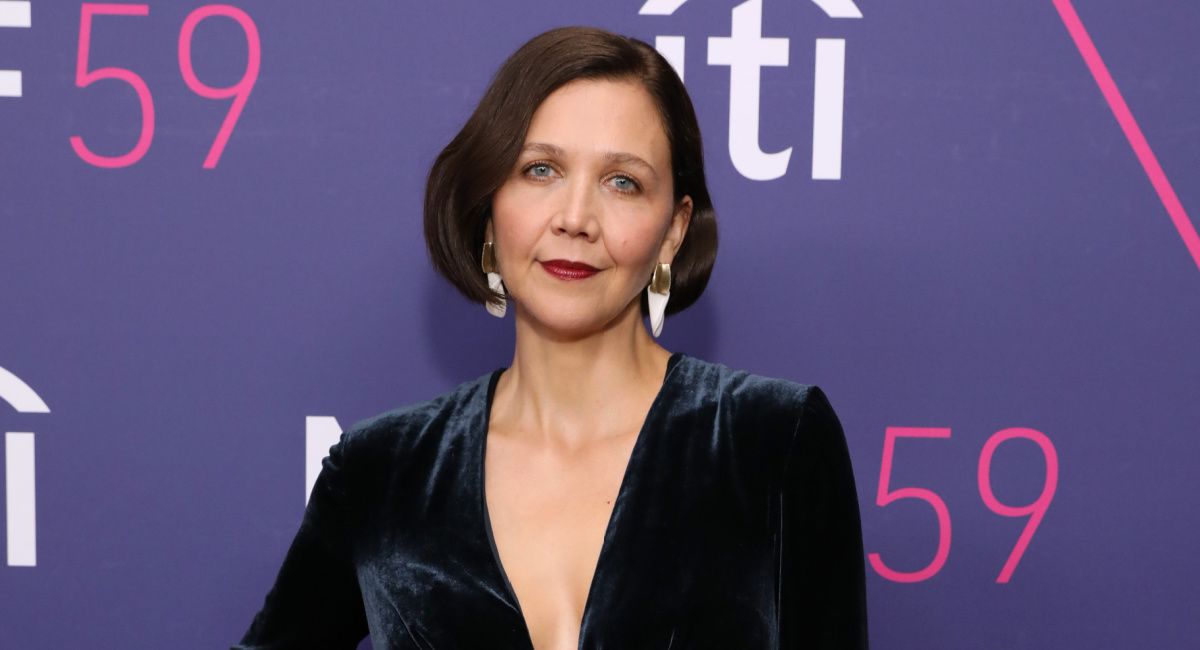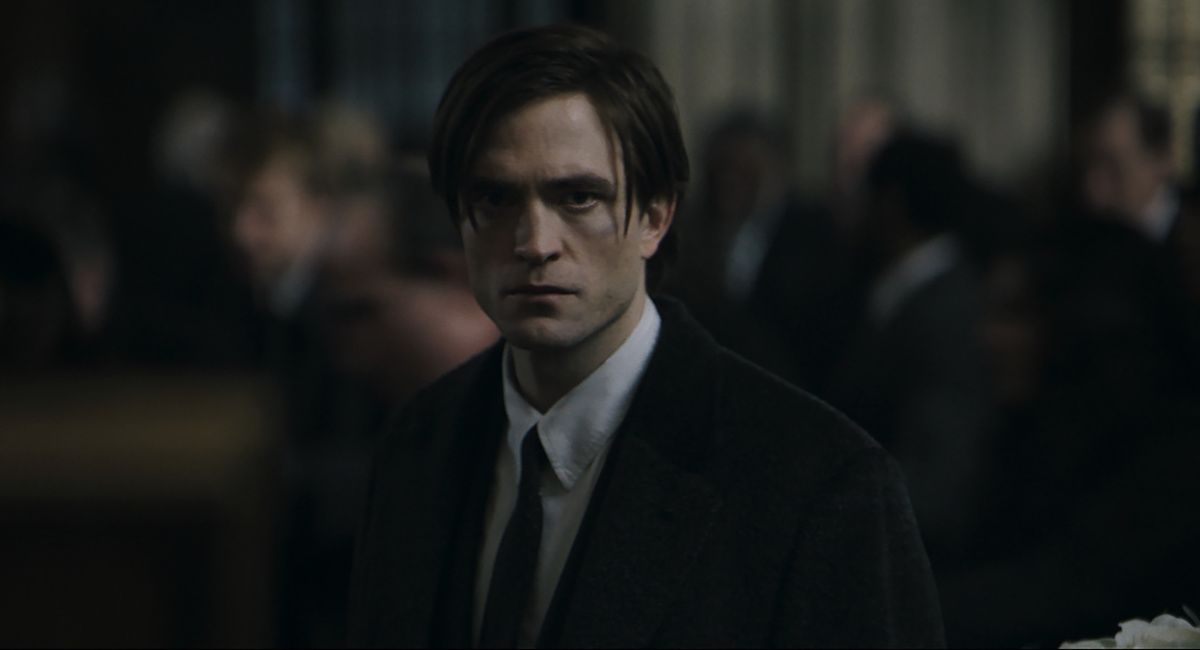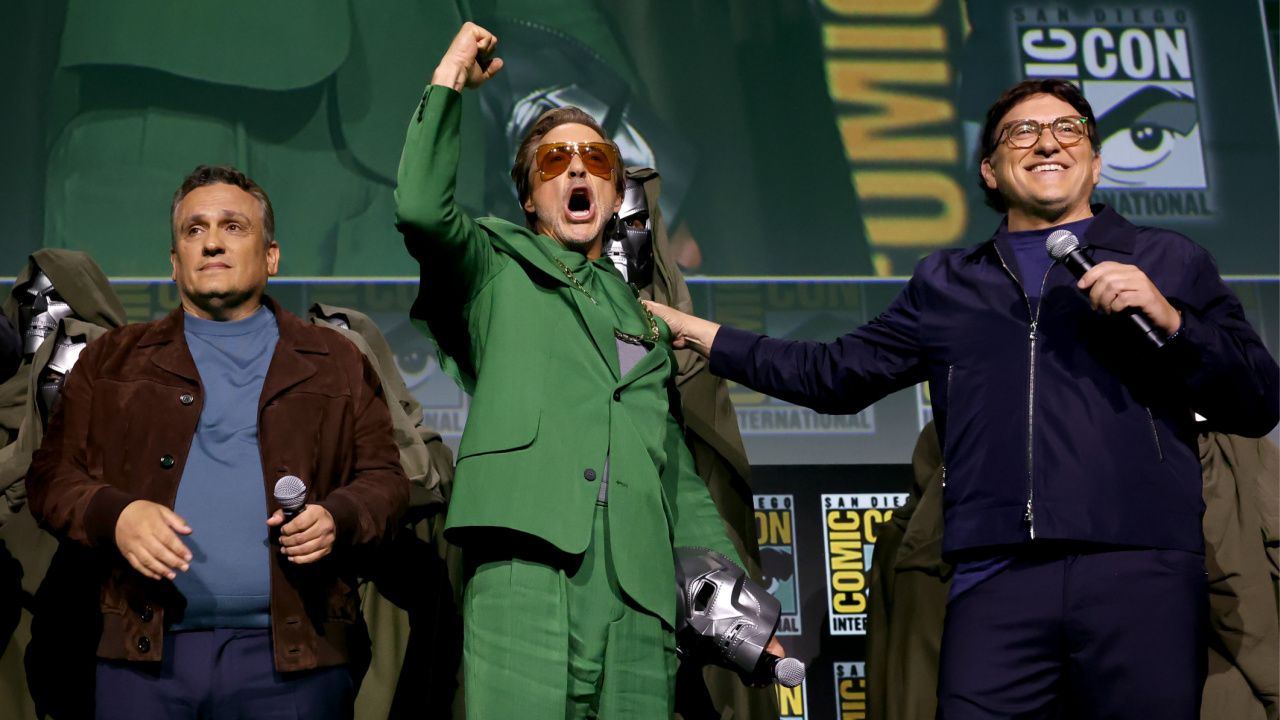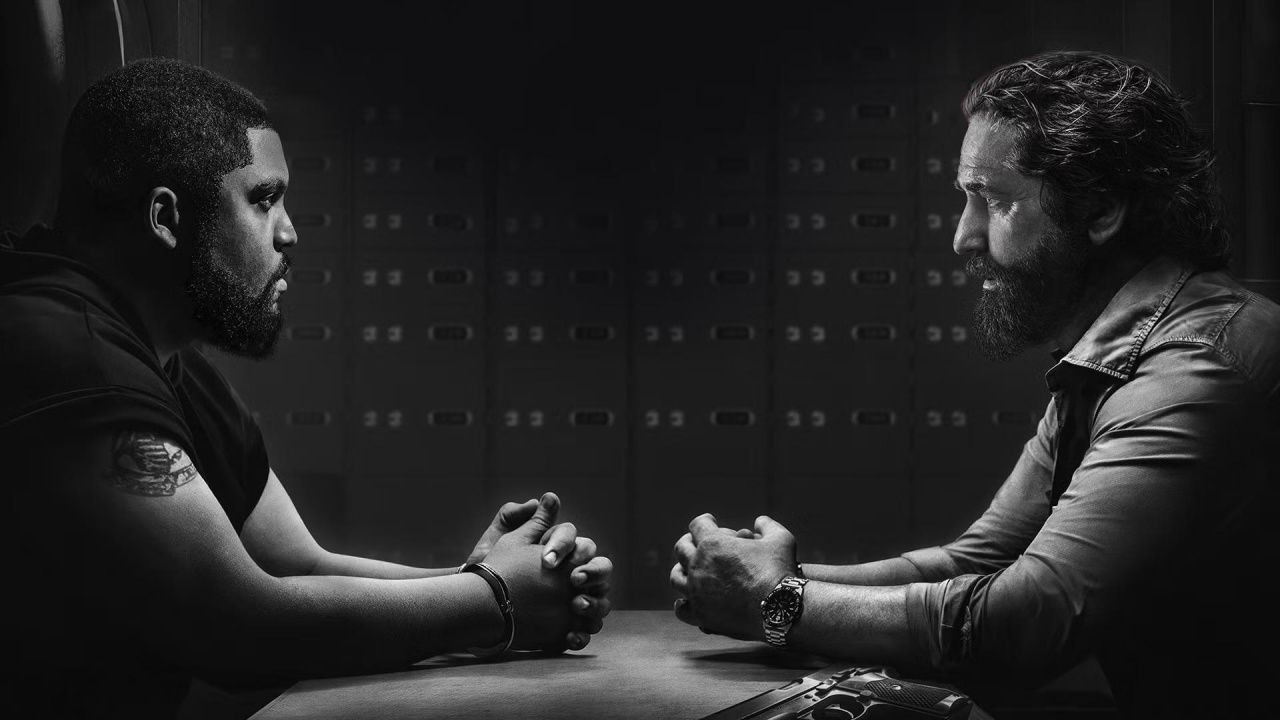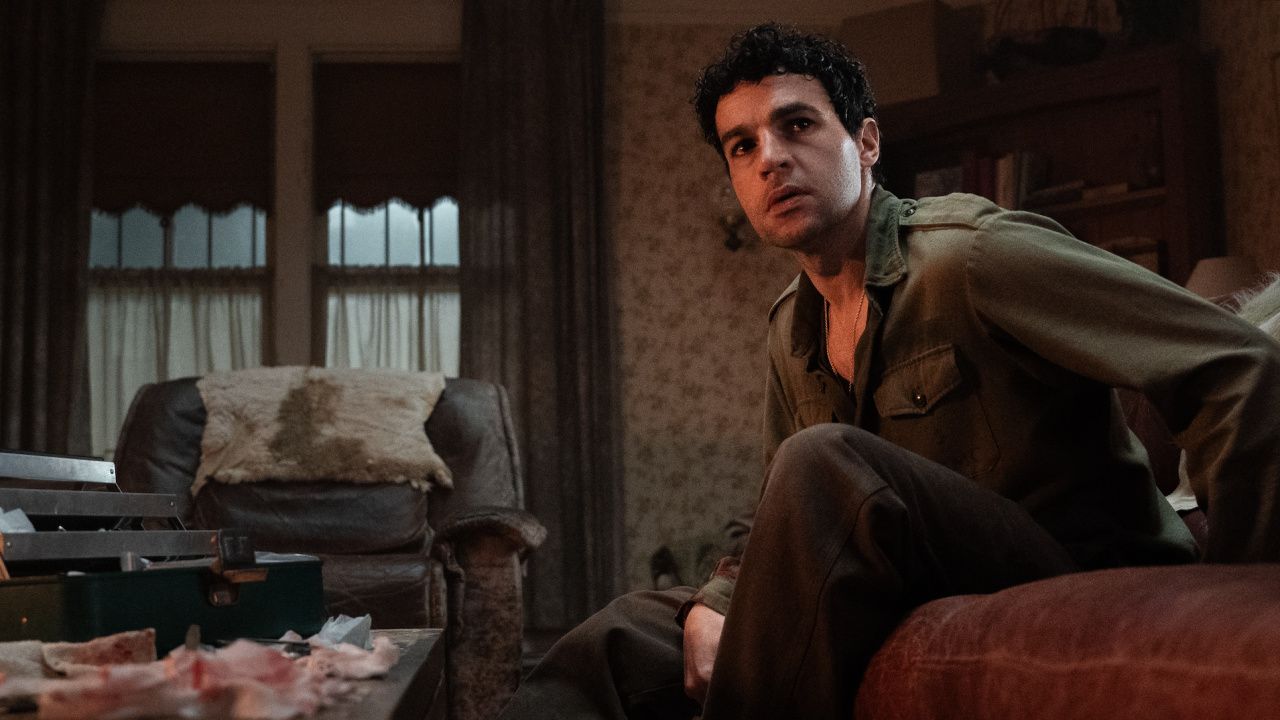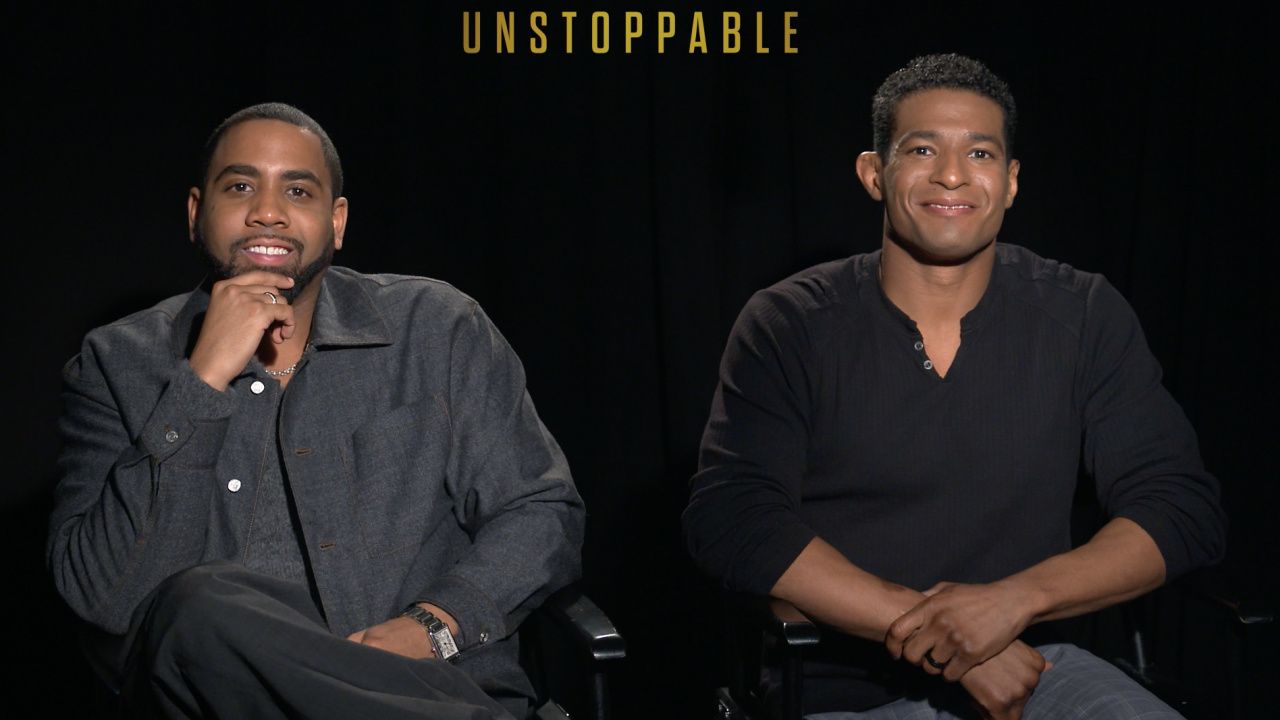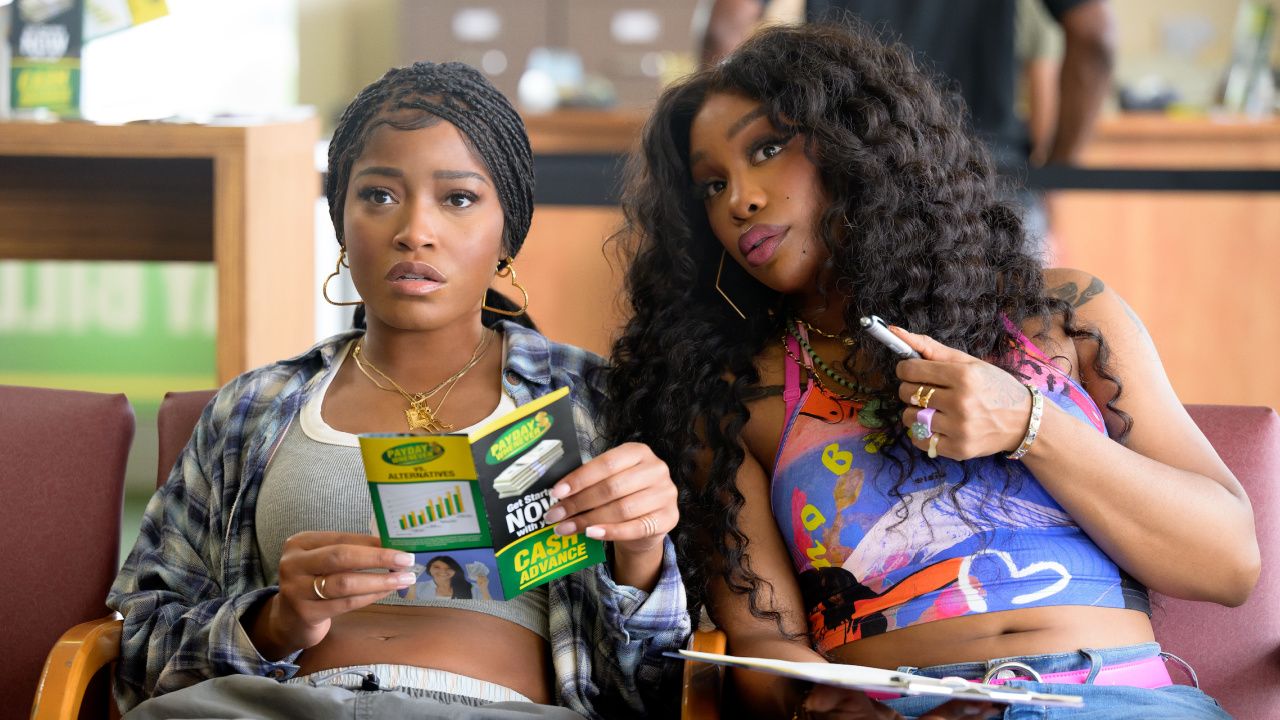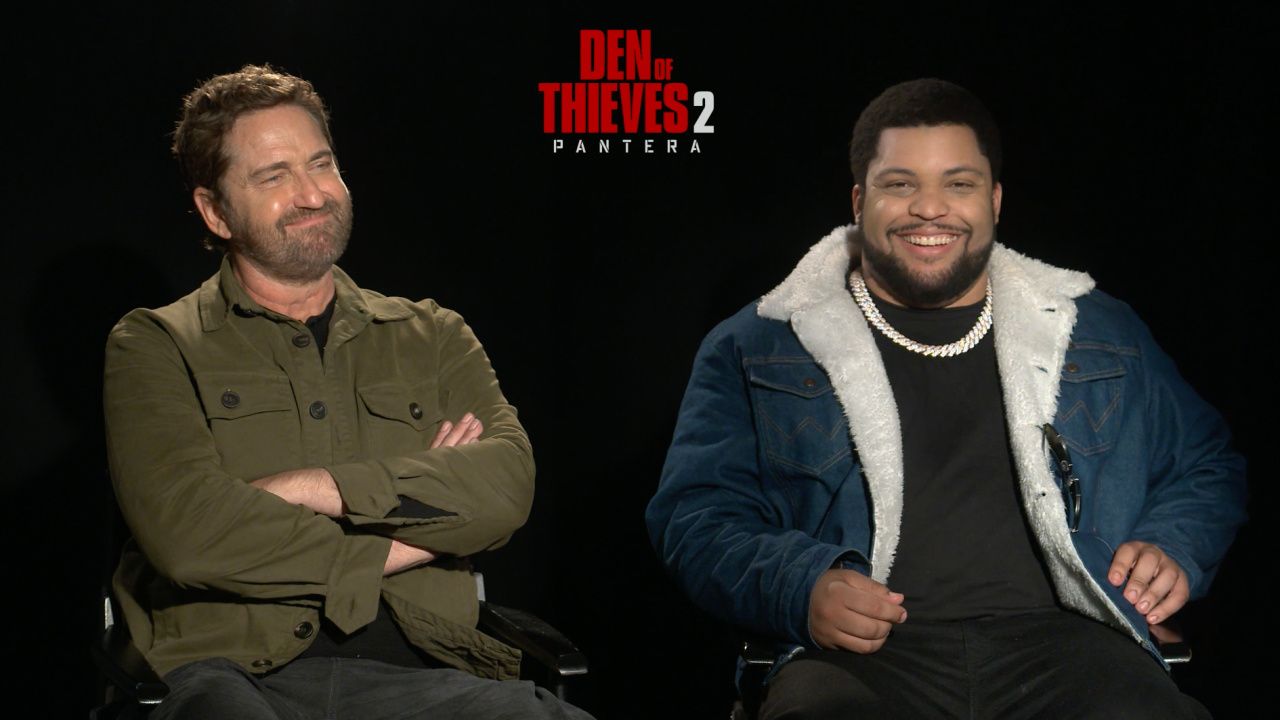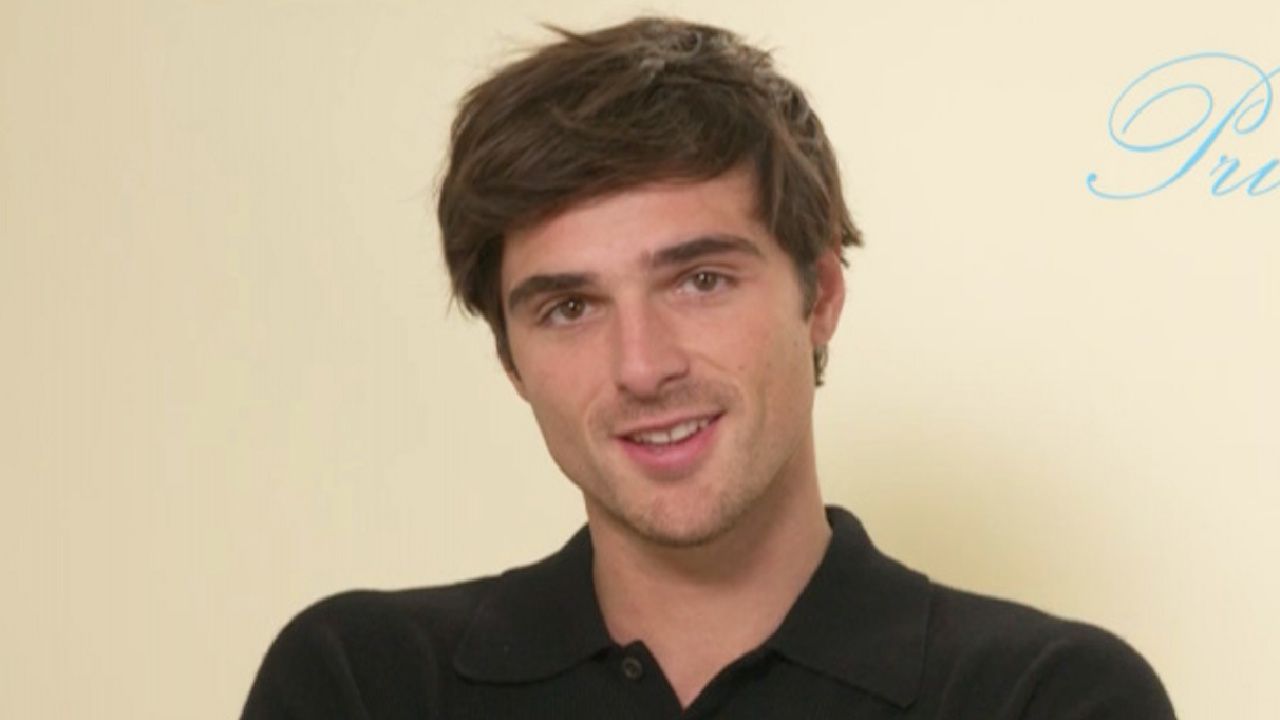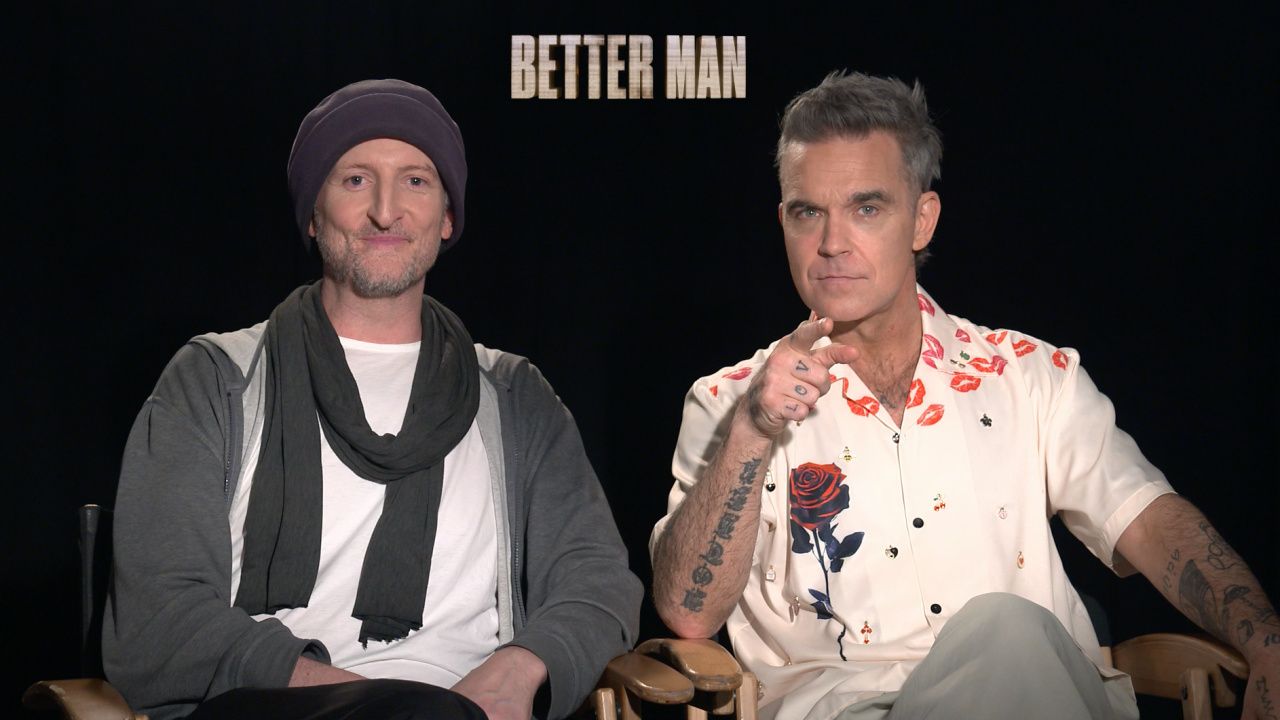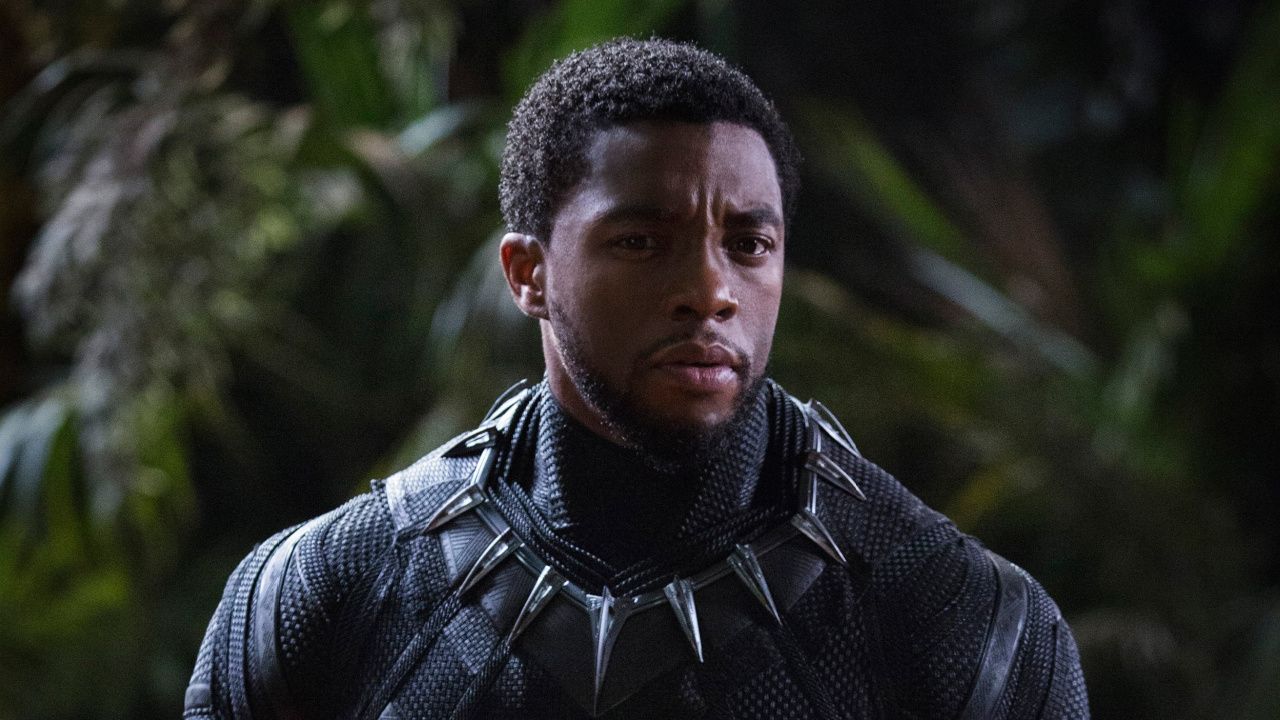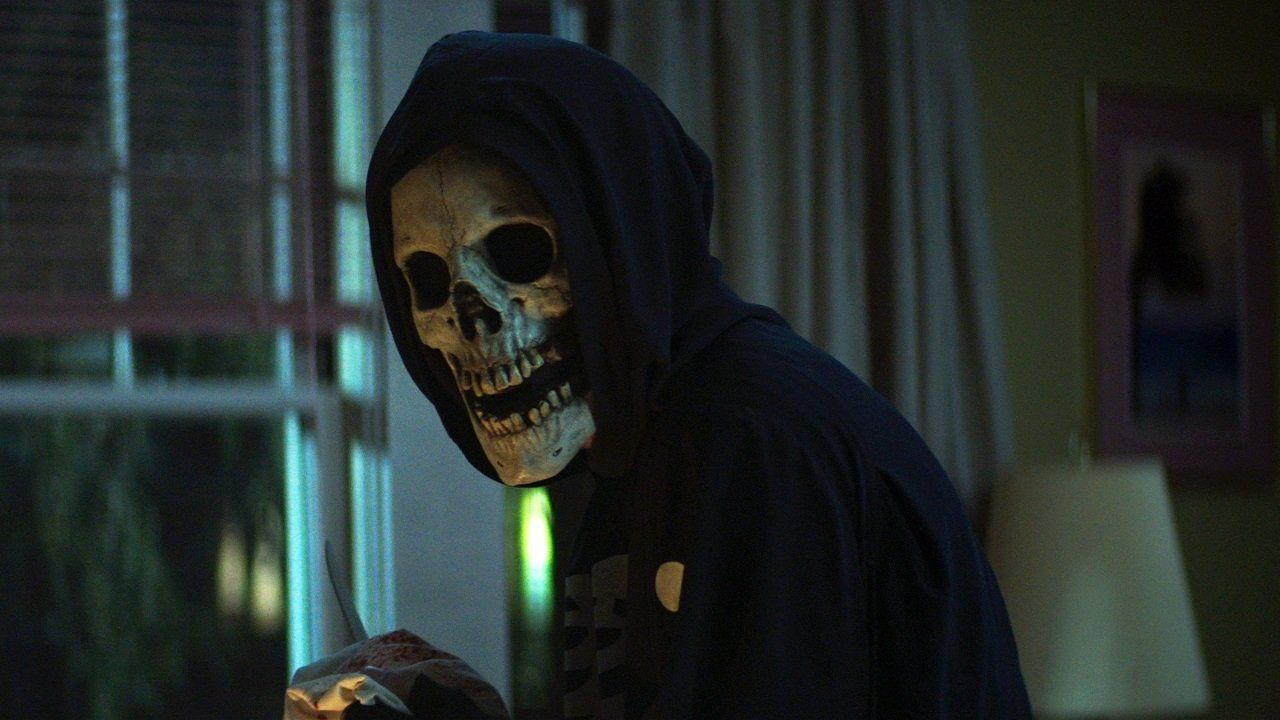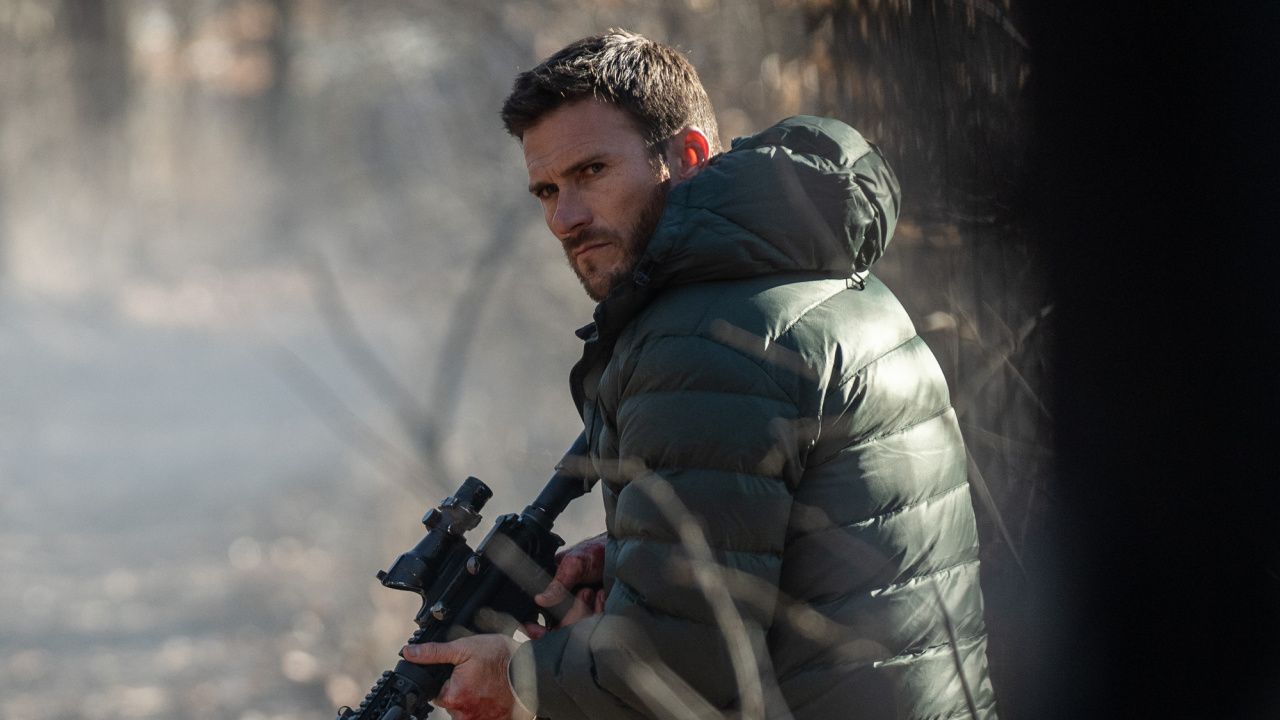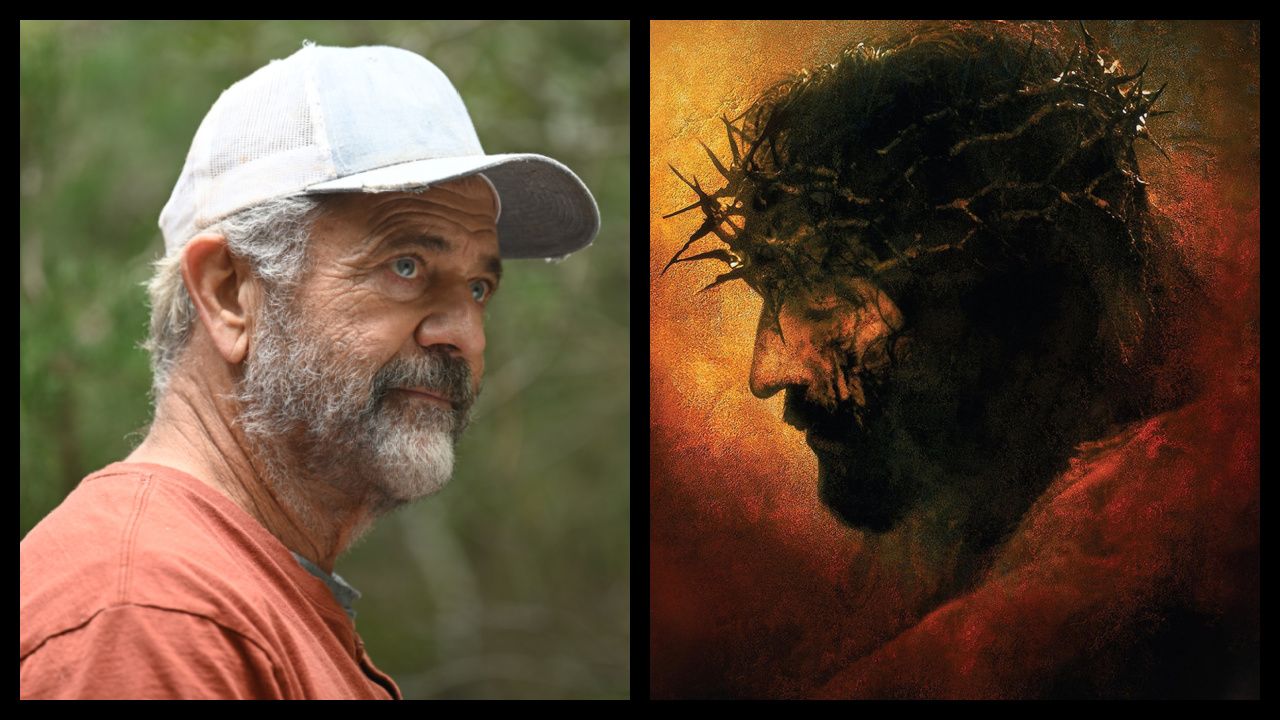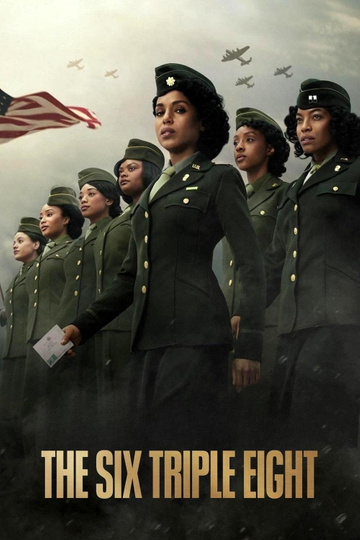Jessica Chastain and Peter Sarsgaard Talk Working Together In ‘Memory’
Moviefone speaks with Jessica Chastain and Peter Sarsgaard about 'Memory.' "There's a great tension in this movie," the Oscar-winning actress explained.
Out now in theaters in limited release before expanding on January 5th is ‘Memory,’ directed by Michel Franco (‘New Order’) and starring Academy Award winner Jessica Chastain (‘The Eyes of Tammy Faye’) and Emmy Award nominee Peter Sarsgaard (‘The Batman’).
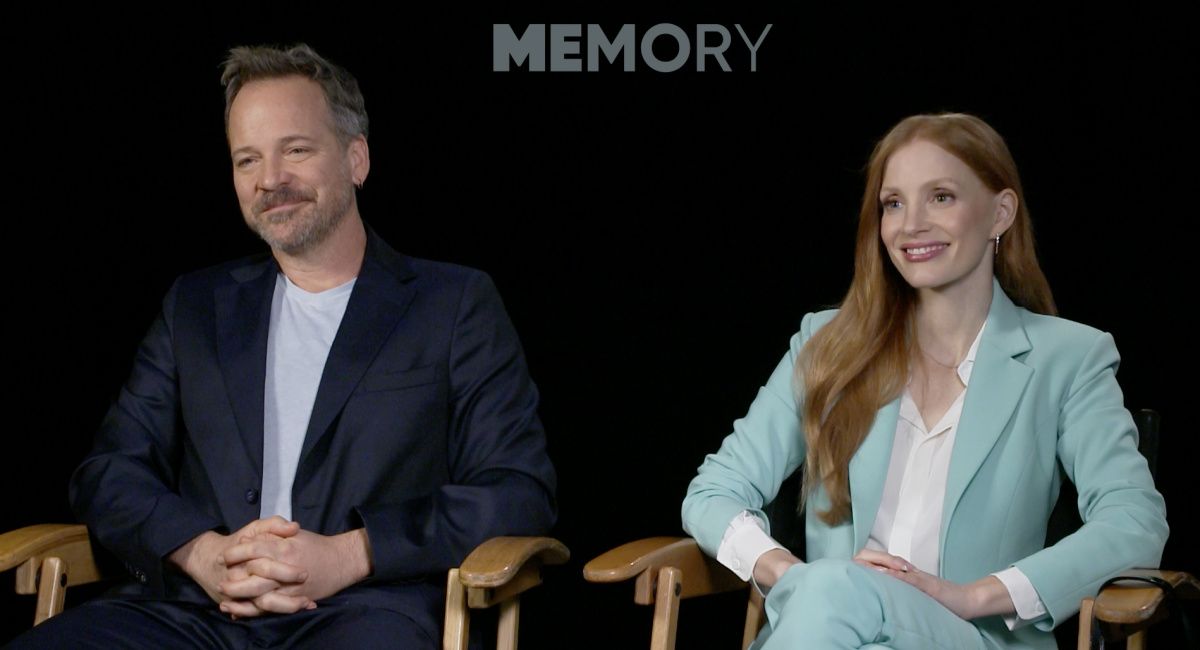
(L to R) Peter Sarsgaard and Jessica Chastain star in 'Memory.'
Moviefone recently had the pleasure of speaking in-person with Jessica Chastain and Peter Sarsgaard about their work in ‘Memory,’ what they liked most about their complex characters, acting together for the first time, and the film’s indie esthetic.
You can read the full interview below or click on the video player above to watch the interviews.
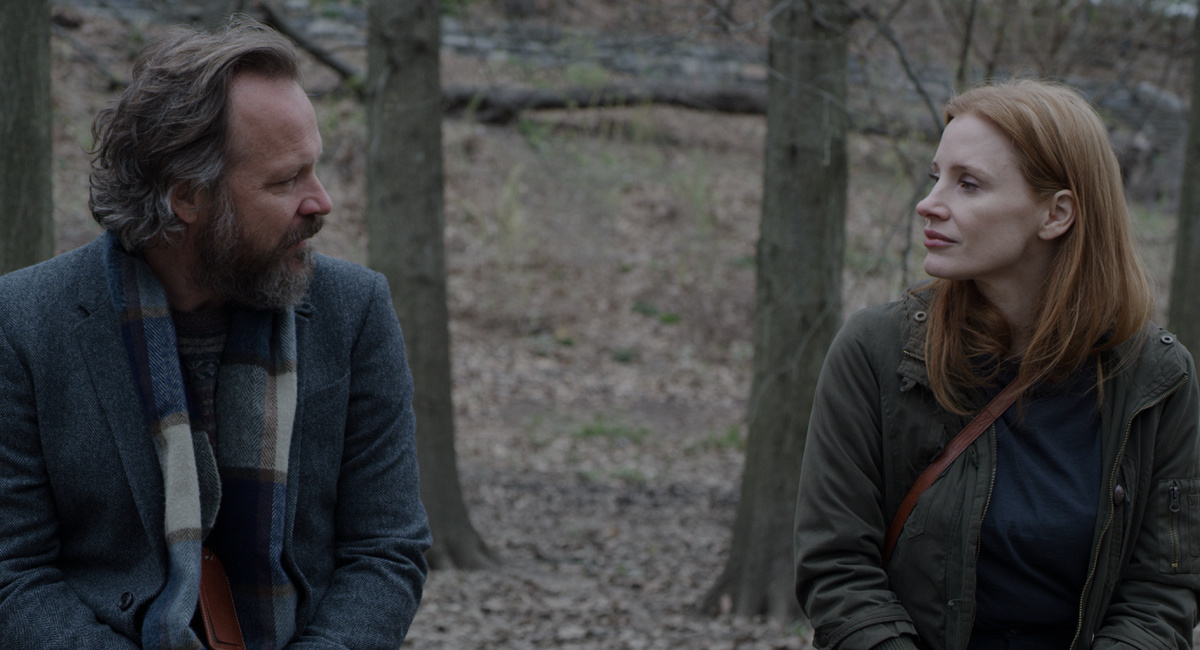
(L to R) Peter Sarsgaard and Jessica Chastain in 'Memory.' Photo: Ketchup Entertainment.
Moviefone: Were either of you surprised that the same guy who wrote something as brutal as ‘New Order’ wrote something as empathetic and sensitive as this?
Jessica Chastain: Well, I was always going to read the script because I really respect him as a filmmaker. But the wonderful thing is that he keeps everyone on their toes. I mean, even when you're in a theater watching ‘New Order,’ you don't know what's going to happen, scene from scene. Same with ‘Memory,’ which could not be more of a different film. You don't know where the characters are heading. You don't know where it's going. I think that's so exciting about him is that I don't know how he does it, but he's able to write and create separate from any kind of cliche or idea of how things have to be done. I think because of that, there's a great tension in this movie because you don't know if it's going to tip into darkness and what moment it could happen.
MF: Your character Sylvia is a woman of many moving parts. What was the single thing, was there a single thing about her that really leapt out at you that made you want to play her?
JC: Well, the main reason I wanted to do it was Michel Franco, and then when I got to know [Sylvia], I just loved her. This woman who experienced so much pain, who never really had anyone in her corner -- I mean, even her sister, who pretends to be in her corner, judges her every single scene that they're in together and sees her as inferior and a problem. Sylvia's always seen as a problem. Yet, when you're carrying that with you, that shame and that idea that you're a problem to so many around you, she works as a social worker, and she checks on people. Even this man who follows her home, she checks to make sure he's okay. She's a good, good human being and I loved her for that.
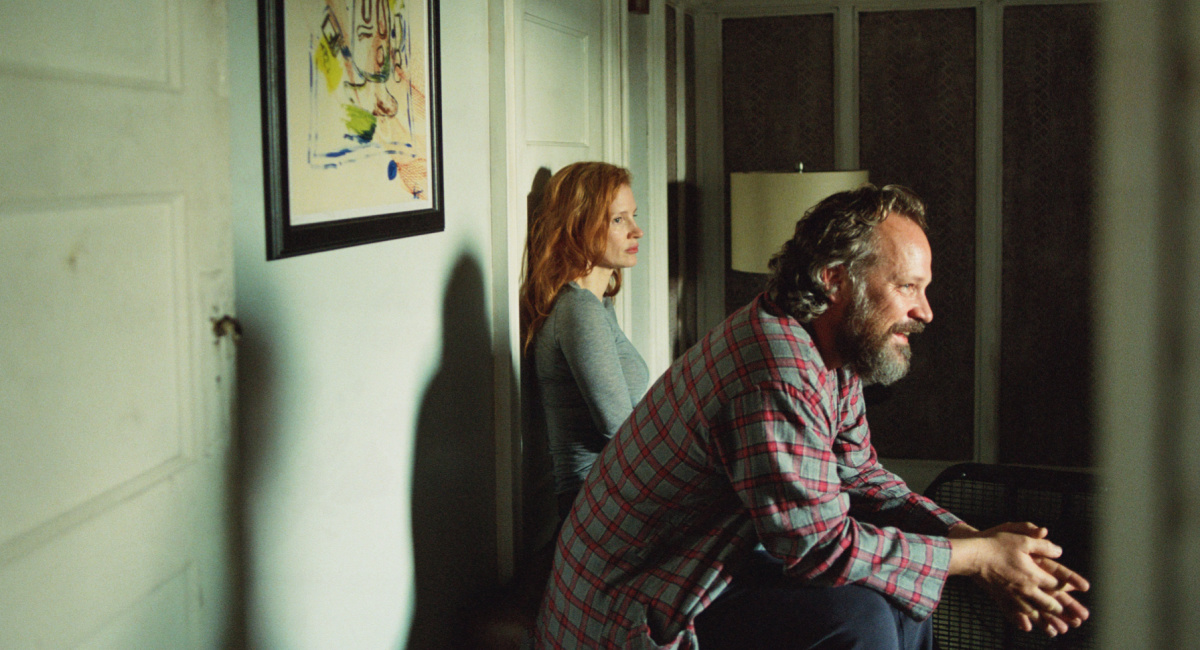
(L to R) Peter Sarsgaard and Jessica Chastain in 'Memory.' Photo: Ketchup Entertainment.
MF: Peter, I read that your uncle had early onset dementia. How did his experience factor into your performance and did you also get other perspectives?
Peter Sarsgaard: I would say that the main thing was that I was aware that it could hit at a young age. I mean, I was 51 or so when I made this movie, so I knew that it would not be unreasonable that I had the condition. My uncle was just such a positive person and somebody who didn't want to be trouble to anyone else, so that the symptoms of his condition were around a long time even before he was diagnosed. So, I liked that, the idea of playing someone that doesn't want to be the problem, that will do anything not to be the problem and is pursuing connection and joy and all of that. I don't like equating [my uncle] with dementia, I like equating him with being Bubba, my uncle. I talked to other people that did have dementia on the phone, and that was helpful just in terms of reminding me that you don't have to have to play dementia every single moment of the movie. You wouldn't notice that some of these men had dementia if you talked to them.
MF: Your character, Saul, comes across almost as if there's this kind of slight film over him, and then he kind of breaks through and you see him, and he sees you.
PS: Well, when I was playing it, I really felt like I was always trying to keep up with what was going on in a very focused way. It made me really look at other people and constantly try to remind myself of where I am in this moment. Then of course, I'm writing things down all the time. But as one of the guys with dementia told me, he was like, "Yeah, I write things down all the time, [but] I never look at what I wrote down," which I think is also probably happening in the movie.
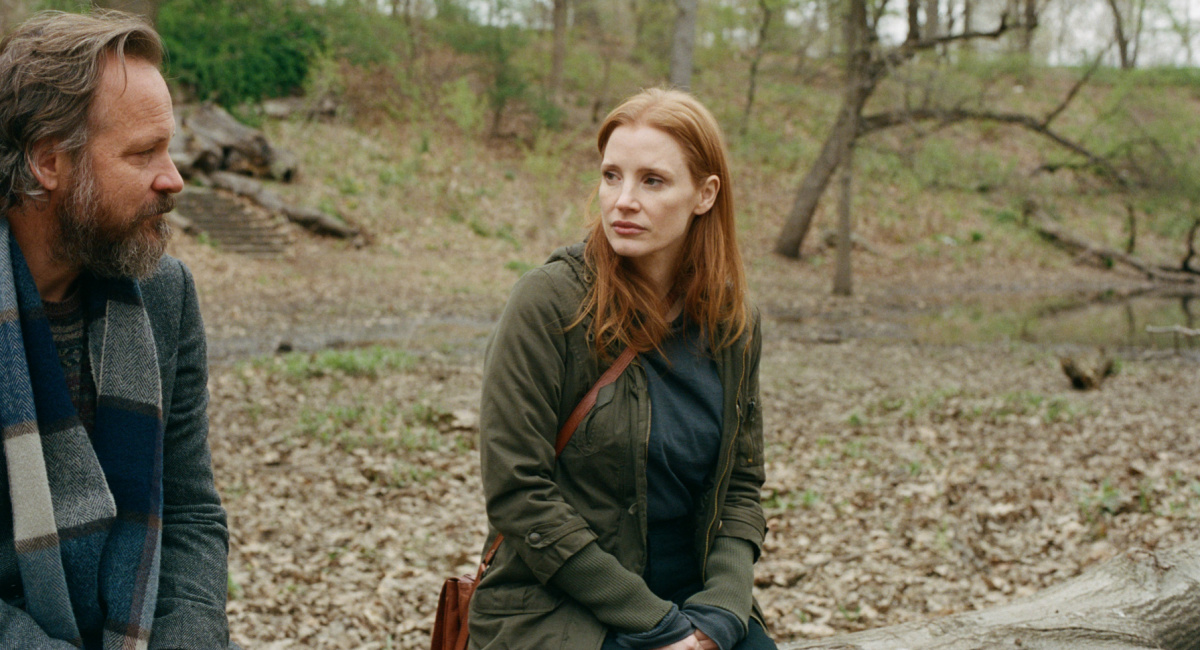
(L to R) Peter Sarsgaard and Jessica Chastain in 'Memory.' Photo: Ketchup Entertainment.
MF: This is the first time the two of you have worked together and it just seems like that's something that should have happened at some point over the years. You're both kind of shapeshifters as actors. Is that what drew you to collaborating with each other?
JC: This whole thing started because I just enjoy so much watching Peter’s work and for years I have, before I could ever get hired in Hollywood. So, I've always admired him in the way he tells stories. He doesn't work from a sense of vanity. There's no sense that he must change a story to fit him, to make him look a certain way. He's willing to change himself to serve a story and to serve humanity, I think in doing that. So, I've always wanted to collaborate with him because I felt like that would be someone on set that I wouldn't know what was going to happen. That's the thing I admire most in another artist, but also the thing I look forward to when going to work.
Related Article: ‘The Eyes of Tammy Faye’ Stars Jessica Chastain and Andrew Garfield Talk About Playing Tammy Faye & Jim Bakker
PS: My wife and I went to a pretty early screening of ‘Eyes of Tammy Faye’ and we were so moved that of course we went and found her as she was signing autographs outside because Jessica does sign every autograph for every fan. We think you're amazing. It was such a joy to tell her -- I love telling an actor when I'm really, really moved by one of their performances. I don't just do it to everyone. So, when I heard that she was attached to this, I mean, it was exactly what I wanted to do at that moment.
MF: How does going from the bigger machinery of studio productions -- and in the case of ‘Tammy Faye,’ the makeup and all that -- to a movie with no trailers, where you, Jessica, did go to the adult daycare center and put in some time there, how does having all the accoutrements sort of stripped away affect your performance?
JC: Well, first, it doesn't feel like a strange thing to me because I started in drama school and in theater. I was just on Broadway. I did my hair and makeup every single day. That's just something you're supposed to do in theater. So, there's something about perhaps coming from theater and drama school where you are doing all of that yourself, which I love, because I love creating a character. I think the only thing that really feels that different is it feels like your feet are to the fire in a way that sometimes it's not. Those bigger movies, you have an hour between setups, and it dissipates the energy and this, you never really allow that to happen. The very first day of shooting was an AA meeting, it was an actual AA meeting that everyone was sharing very personal things about their lives. You can't show up and be like an actor in that scene. You must show up as an authentic version of who your character is and not stand out. I think it sounds more difficult, but for me it makes it easier because you don't get an escape from the character.
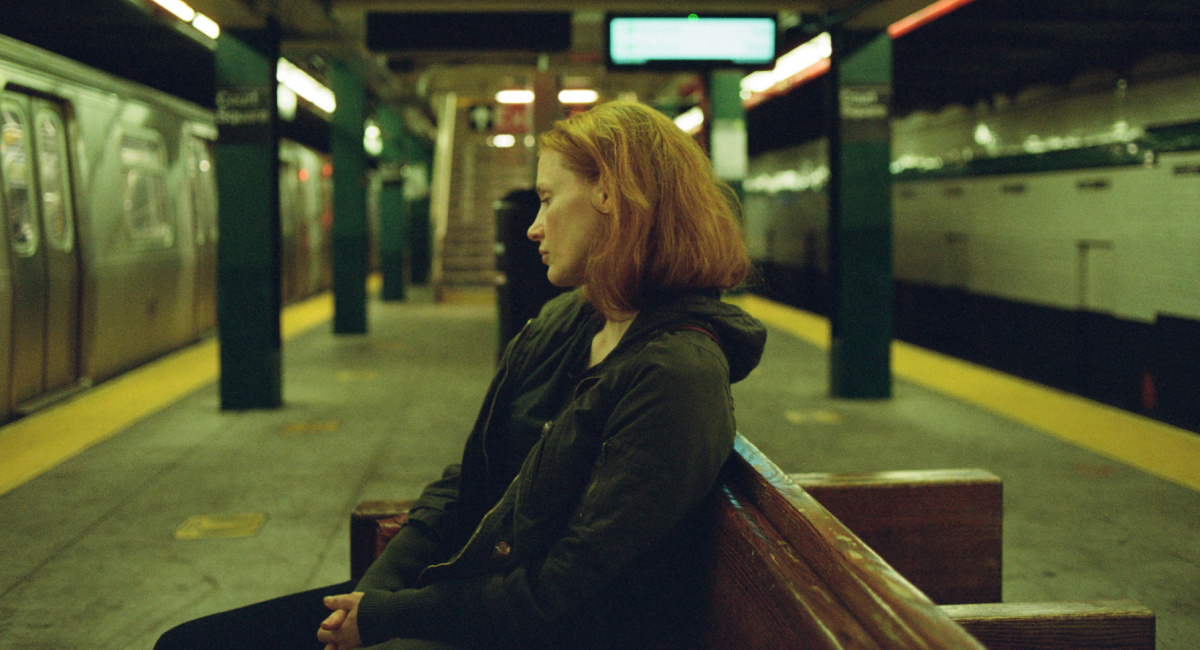
Jessica Chastain in 'Memory.' Photo: Ketchup Entertainment.
PS: That's right. I think I have an enormous amount of respect for people who can keep their feet really anchored on a big film that's shooting for four and a half months somewhere. It's a very specific skill. The way Michel set this up, it's really, really for the actors. We control the tempo because there's no cutting on the scenes. Everything is wide, usually from one angle, the whole scene. So that's a lot of trust in your actors and when you're acting with someone as talented as Jessica, as talented as Jessica Harper, as Josh [Charles] and Merritt Wever, it reminds me of sports actually -- you know where the ball is all the time. It's like those old theater games. We were really like a group because we had to rely on each other. It wasn't going to be intercut. There are some shots that have six people in the same frame. If one of them is picking their nose and thinking about picking up their kids after school, then it doesn't work.
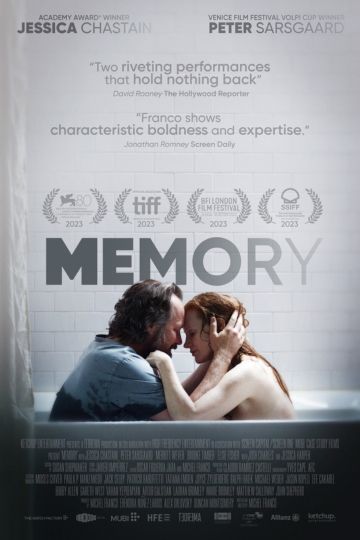
What is the plot of ‘Memory’?
Sylvia (Jessica Chastain) is a social worker who carefully controls every aspect of her life, including her job, her AA meetings, and her interaction with her daughter. But an unsettling encounter at her high school reunion – with a man (Peter Sarsgaard) she thinks she remembers all too well, yet who struggles moment to moment with his own memory – will lead Sylvia to confront her life choices and the memories she chooses to keep and let go.
Who is in the cast of ‘Memory’?
- Jessica Chastain (‘The Eyes of Tammy Faye’) as Sylvia
- Peter Sarsgaard (‘The Batman') as Saul
- Merritt Wever (‘Marriage Story’) as Olivia
- Brooke Timber ('Russian Doll') as Anna
- Josh Charles ('The Good Wife') as Isaac
- Jessica Harper (‘Bones and All') as Samantha
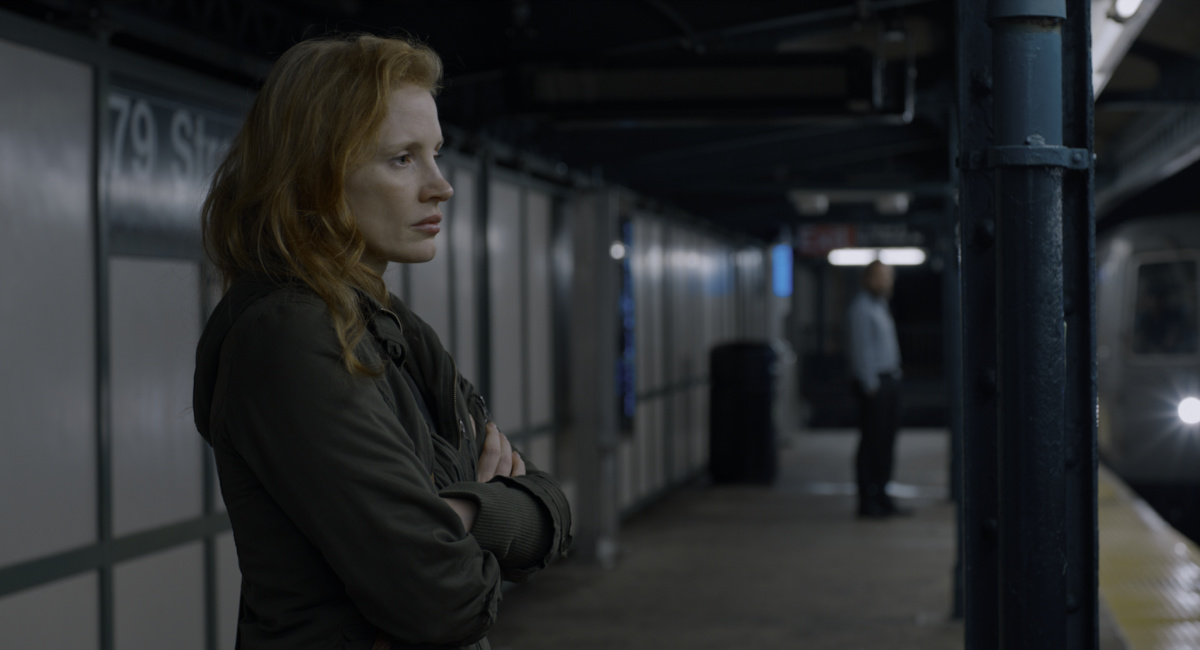
Jessica Chastain in 'Memory.' Photo: Ketchup Entertainment.
Other Jessica Chastain Movies:
- 'The Debt' (2011)
- 'Take Shelter' (2011)
- 'The Tree of Life' (2011)
- 'The Help' (2011)
- 'Texas Killing Fields' (2011)
- 'Madagascar 3: Europe's Most Wanted' (2012)
- 'Lawless' (2012)
- 'Zero Dark Thirty' (2012)
- 'Interstellar' (2014)
- 'A Most Violent Year' (2014)
- 'The Martian' (2015)
- 'Crimson Peak' (2015)
- 'The Huntsman: Winter's War' (2016)
- 'Miss Sloane' (2016)
- 'Molly's Game' (2017)
- 'Dark Phoenix' (2019)
- 'It Chapter Two' (2019)
- 'Ava' (2020)
- 'The Eyes of Tammy Faye' (2021)
- 'The 355' (2022)
- 'Armageddon Time' (2022)
- 'The Good Nurse' (2022)
Buy Jessica Chastain Movies on Amazon












